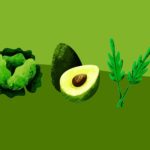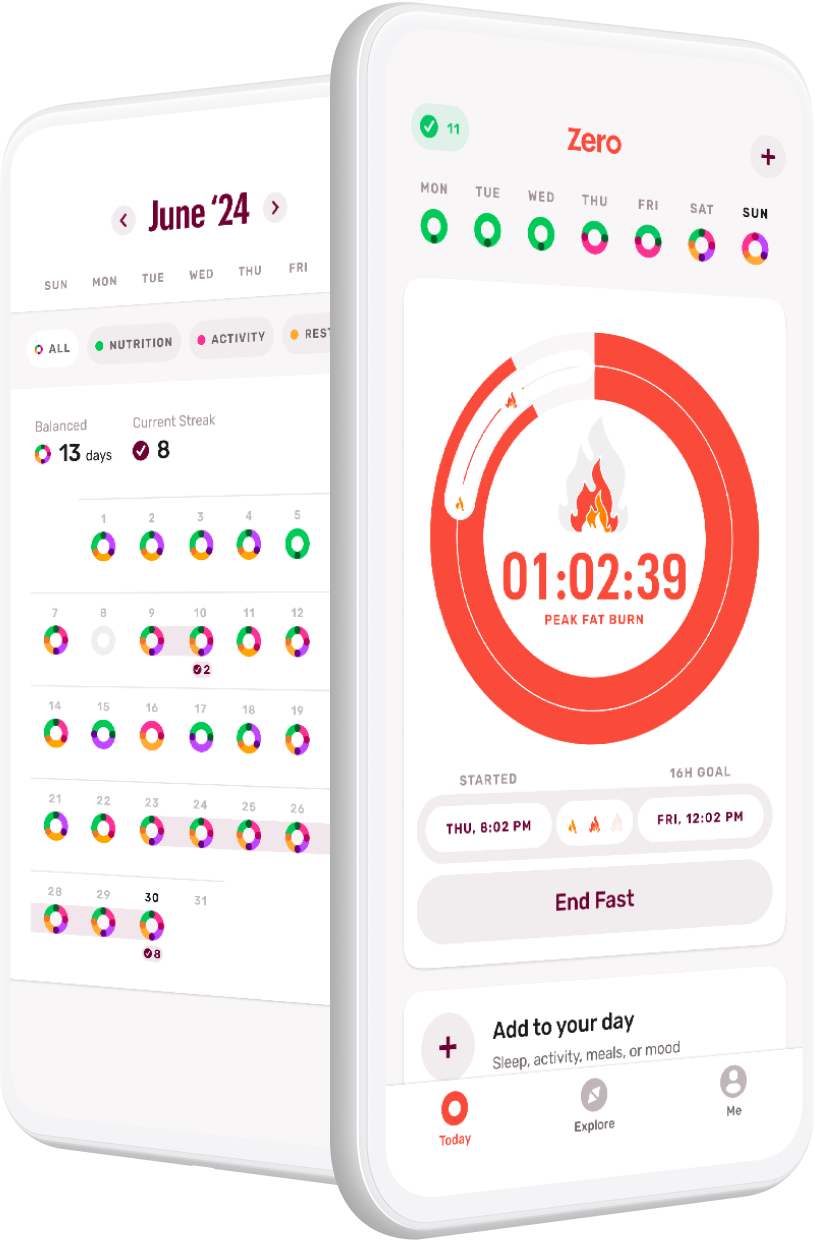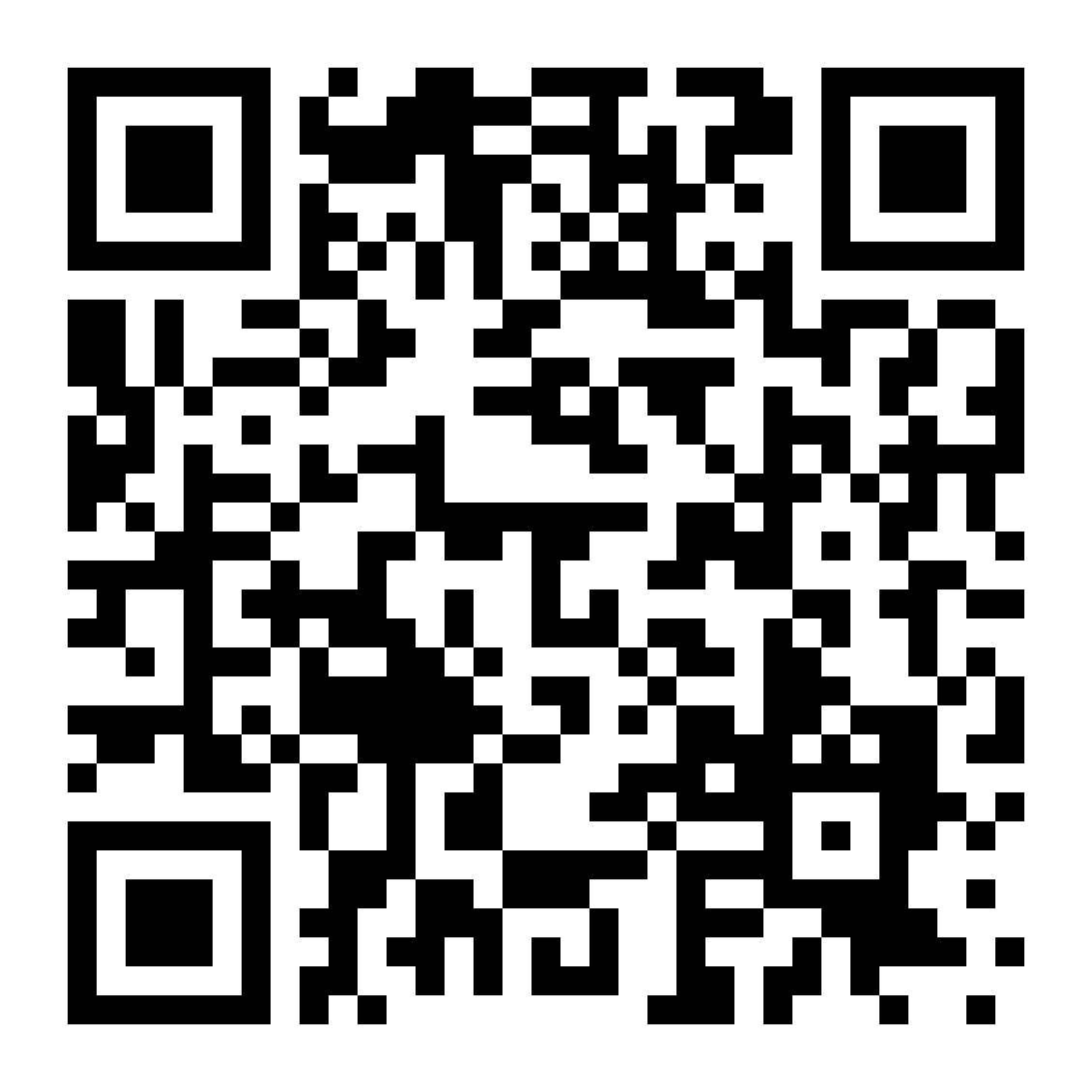Written and medically reviewed by Rich LaFountain, PhD
Intermittent fasting means not eating food… but what about beverages? While some are off limits, there’s a wider variety of options you can — and probably should — consider.
What Is the Best Thing to Drink During Intermittent Fasting?
Short answer: The best thing to drink during intermittent fasting is water. It is easy, low to no cost, and entirely healthy. If you want to improve the absorption of water into your body for better hydration, you can add electrolytes such as sodium, potassium, and magnesium.
During fasting, hydration is especially important since you aren’t eating foods that may contain water. Drinking water during your fast can also help reduce hunger pangs and boredom.
How to Choose Drinks During Intermittent Fasting
When you’re in a fasted state, the two most important things to look for in your drinks to determine whether they are fast-friendly are calories and carbohydrates. This is where your reason for fasting will play a role in your decision-making. If you’re fasting to promote autophagy or you want to rest your gut, then you need to avoid drinks that contain any calories at all, and drink water instead. Energy (in the form of calories) will disrupt your autophagy signaling and activate your digestive system, which will keep you from experiencing specific autophagy and gut-rest fasting benefits. Thus, water only is the best option in these instances.
Most people fast because they’re interested in weight loss and metabolic-health gain. In that case, the primary purpose of fasting is to allow your insulin levels to come down to natural baseline levels. When that occurs, it signals your body to rev up its fat-burning machinery. Carbohydrates, especially simple carbohydrates (like sucrose, found in sugary drinks) will cause blood sugar and insulin levels to rise and therefore block fat burning. So, while a few calories in a drink might not hurt, these calories should not come from carbohydrates if you’re fasting to lose weight. Since it can be easy to overconsume drinks with calories and inadvertently break your fast, it’s generally best to avoid calories in your drinks.
Intermittent-Fasting Drinks Allowed During the Fasting Period
During your fasting window, you need to be aware of the drinks you consume so you don’t interrupt your fast and your body reaps the many potential benefits. As mentioned, you should avoid calories, carbohydrates, and other ingredients (like some artificial sweeteners) that might disrupt your body’s fasting process.
Here are the top three most popular drinks allowed during the fasting period!
Water
Water is the most important drink you will have throughout your day, whether you’re fasting or not. Water is calorie free and won’t cause any glucose or insulin spikes, so drink it often to maintain healthy hydration, especially while fasting. Adding electrolytes can also help prevent dehydration signs and symptoms. In fact, fasting is often blamed for the signs and symptoms associated with poor hydration, so, to avoid them, drink plenty of water. Carbonated or sparkling water is also permitted. In fact, research suggests the bubbles in carbonated water can reduce feelings of hunger or an empty stomach. So, stock up on seltzer!
Black Coffee
Plain black coffee is a fan favorite for people who are fasting. Black coffee contains a stimulant, caffeine, which helps boost energy levels while driving up your metabolic rate. Coffee also contains a host of different polyphenols, which are molecules that promote healthy DNA and immune-system function. Coffee contains very few calories and will not drive your glucose or insulin levels up, so as long as you don’t have too much coffee or add sugar, sweeteners, or non-dairy additives, your morning cup of joe will stay fast-friendly.
According to research, a few cups of black coffee throughout your day can be a great way to help manage glucose levels, improve insulin sensitivity, and reduce diabetes risk in the long term. So-called bulletproof coffee uses add-ins like butter, coconut oil, or heavy cream to spice up black coffee. These quickly increase the calorie content of your coffee, but if you’re careful not to overdo it and the fats you add are not spiking your glucose, then this strategy might allow you to stretch your fast a little bit, since you are getting some energy from the fat while keeping glucose levels low and many of the fat-burning benefits of your fast intact. Speaking of fat burning, a cup of coffee is a known lipolytic — a substance that may improve your body’s natural fat-burning rate during your fast.
Tea (Black, Green, or Herbal)
Globally, tea is even more popular than coffee. Good news: Black tea, green tea, and herbal tea are all fast-friendly drink options. Some tea is infused or made with fruit. Those teas carry a higher risk of breaking your fast, so try to steer clear if you’re trying to make the most of your time spent fasting.
Tea does not contain as much caffeine as coffee, but you still may get a modest energy boost. While black tea has more caffeine than green tea, green tea has a higher concentration of polyphenols and antioxidants. In fact, if you’re a fan of green tea and want even more antioxidant effects, matcha (a powdered, condensed form of green tea) contains up to 10 times the antioxidants of regular green tea, with only a few additional calories.
Finally, herbal teas, like chamomile tea, can be pleasant to drink after you start your Fasting Timer before bed, as they contain no caffeine and can help improve your transition to sleep.
What Can You Drink During the Intermittent-Fasting Eating Window?
During your eating window, virtually all beverages are permitted. Of course, some beverages are still healthier options than others. Beverages that should probably be avoided most of the time, even during your eating window, would be drinks that contain a lot of sugar, or alcoholic drinks. Drinks that are great during your eating window include the following.
Water, Coffee, and/or Tea
Water, coffee, and tea are all great options while fasting, but that doesn’t mean you need to avoid them during your eating window. Water, for example, is an essential and calorie-free beverage that should be a staple during both your fasting and eating windows. Staying adequately hydrated is crucial for various bodily functions including digestion, nutrient absorption, and overall health. Consider drinking water before, during, and after meals to support digestion and help maintain proper hydration levels. Similarly, coffee and tea can be consumed alongside or between meals to help ensure proper hydration as well as reduce cravings and hunger and even give you a boost of energy.
Bone Broth
Bone broth is a relatively low-calorie beverage that provides a quick, easily digestible serving of protein, especially after a fast. It can even be a great addition to your Fast-Breaker meal, as it helps boost your protein intake in addition to providing collagen and minerals.
Evidence suggests that the amino acids in bone broth also support digestive function and joint health. If you don’t enjoy sipping bone broth on its own, you can also substitute it for water or other types of broth when cooking — for instance, to fortify rice or make a savory, nutrient-rich soup base.
Milk and/or Kefir
Milk and kefir are both dairy products that offer a range of health benefits due to their nutrient content and probiotic properties. Milk is over 85% water, contains minerals like calcium and phosphorus, and contributes to your overall fluid intake. Milk is also a good source of vitamin D and is rich in protein. Kefir, meanwhile, provides the same benefits as milk with added digestive advantages and greater nutrient absorption.
Kefir is a fermented dairy product similar to a drinkable yogurt that contains a variety of beneficial bacteria and yeast strains, making it a great source of probiotics. Probiotics can contribute to a healthy balance of gut microbiota, promoting digestive health and potentially supporting the immune system.
If dairy disagrees with you or you’re unwilling to consume traditional dairy, there are many plant-based alternatives fortified with vitamins and minerals contained in animal milk, so feel free to substitute them if that better fits your preferences and nutritional needs.
Which Drinks Break a Fast?
Drinks that contain calories and spike your insulin will break your fast regardless of your fasting goals. These drinks include sugar-sweetened soft drinks, fruit juices, smoothies, low-fat milk, alcoholic beverages, and anything else that contains carbohydrates or simple sugars. Drink additives, including many creamers and flavored syrups, often contain a lot of sugar and calories that will interfere with the metabolic benefits of fasting. So, if you’re looking for a little flavor perk for your beverage, be vigilant; there are many sneaky names for sugar hidden in nutrition labels. Whenever possible, opt for zero-calorie beverages and unsweetened products to maintain the metabolic and hormonal benefits of intermittent fasting.
Are Zero-Calorie Drinks Okay During Intermittent Fasting?
Many zero-calorie drinks are okay during intermittent fasting, but some calorie-free beverages are best avoided. Some drinks contain zero calories but are made with artificial sweeteners or other chemical ingredients that could trigger an insulin response, potentially disrupting the metabolic benefits of fasting. Some examples include diet sodas, flavored water, sports drinks, energy drinks, and flavored teas.
Data are mixed, but some studies suggest that certain artificial sweeteners may promote insulin release — which will interfere with your fast! Artificial sweeteners that may cause an insulin response are aspartame, sucralose, saccharin, and acesulfame potassium. As a general rule, natural, non-nutritive sweeteners (like stevia) are a better alternative to artificial sweeteners.
To identify whether a zero-calorie drink contains any of these insulin-raising artificial sweeteners, read the nutritional information and ingredients list. When in doubt, choose plain water, black coffee, or unsweetened tea to maintain the benefits of intermittent fasting.
Why Is Hydration Important During Intermittent Fasting?
Hydration is always important, but it’s even more important during intermittent fasting. You’re not eating foods like fruits and vegetables during your fast, which means you’re not getting the same water from them that you would during your eating window. As a result, fasting is often blamed for the unwanted side effects associated with poor hydration. To avoid these effects and keep your fasts enjoyable, drink plenty of water and fast-friendly fluids.
Plus, drinking lots of fast-friendly drinks will not only keep you hydrated but also give you an opportunity to fill your belly, reduce feelings of hunger, boost your energy (if they’re caffeinated!), and even increase your intake of healthy nutrients while you’re fasting.
Ready to start using Zero? Take the quiz or download the app today.
- Debunking 3 Myths Around Fasting and Thyroid Health - April 15, 2024
- Breaking Down Fast Breakers: How to Tell If Something Will Break Your Fast - March 4, 2024
- GLP-1s and Weight-Loss Medications vs. Lifestyle Interventions: What’s Right for You - February 5, 2024


